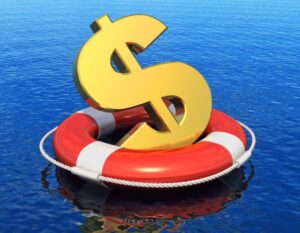
Inflation is a term that’s become all too familiar recently, affecting economies globally and reshaping how we think about and manage our finances. The rising costs of goods and services can diminish the purchasing power of our income, leading to tighter budgets and increased financial strain. However, even in the face of such economic challenges, it’s possible to not only survive but also thrive by adopting certain financial lessons and strategies. Here are ten essential financial lessons that are particularly relevant today for surviving inflation.
1. Understand Inflation and Its Effects

The first step in combating any problem is understanding it. Inflation, in the simplest sense, is the rate at which prices for goods and services rises, subsequently eroding purchasing power. It can affect everything from your grocery bill to housing costs, so understanding how it impacts your finances is crucial. This knowledge will help you make informed decisions and plan accordingly.
2. Budgeting Is More Crucial Than Ever

With prices on the rise, maintaining a budget becomes not just beneficial but essential. A well-structured budget can help you track your income and expenses, identify unnecessary expenditures, and reallocate funds to more critical areas. It’s the foundation for financial stability, allowing you to plan for both short-term needs and long-term goals.
3. Emergency Fund: Your Financial Safety Net

In times of economic uncertainty, having an emergency fund is like having a financial life vest. Aim to save at least three to six months’ worth of living expenses. This fund is a functional buffer against unexpected costs or income loss, providing security and peace of mind.
4. Smart Investing Can Hedge Against Inflation

Investing wisely can not only help you grow your wealth but also protect it against the eroding effects of inflation. Assets like stocks, real estate, and certain types of bonds can potentially offer returns that outpace inflation. However, it’s essential to do your research and possibly consult with a financial advisor to align your investments with your risk tolerance and financial goals.
5. Diversification: Don’t Put All Your Eggs in One Basket

Diversification is a critical principle in investing, especially during inflationary times. By spreading your investments across different asset classes, sectors, and geographies, you can reduce risk and increase the chances of your portfolio withstanding market volatility.
6. Debt Management Becomes Paramount

High inflation often leads to higher interest rates, which can increase the cost of debt. Paying off high-interest debt, particularly variable-rate debt like credit cards, should become a priority. Consider consolidating debts or refinancing to secure lower interest rates.
7. Seek Opportunities for Additional Income

Relying on a single source of income can be risky, especially during inflationary periods. Look for opportunities to earn additional income, whether through side gigs, freelance work, or investing in income-generating assets. This can help you keep pace with rising costs and even contribute to savings or investment goals.
8. Mindful Spending: Quality Over Quantity

Inflation necessitates a shift in spending habits, emphasizing the importance of buying quality items that last longer rather than opting for cheaper, less durable alternatives. This approach can lead to savings in the long run, as you’ll need to replace items less frequently.
9. Stay Up-to-Date and Flexible

The economic landscape is constantly changing, and staying informed about inflation trends, interest rates, and market conditions can help you make timely adjustments to your financial strategy. Regularly review your financial plan and be ready to adapt to new information or changes in your personal circumstances.
10. Invest in Yourself

Lastly, one of the best investments you can make during inflationary times is in yourself. Enhancing your skills, pursuing further education, or obtaining certifications can improve your employability and potential earnings. This not only helps you keep pace with inflation but can also open up new opportunities for career advancement and income growth.
Empowerment Is the Key to Surviving Inflation

Surviving inflation requires a proactive and informed approach to personal finance. By understanding inflation’s impact, maintaining a robust budget, building an emergency fund, investing wisely, managing debt, and seeking additional income sources, you can navigate economic uncertainties more effectively. Remember, the key to financial resilience lies not just in surviving but in adapting and thriving despite the challenges. Adopting these financial lessons can empower you to maintain financial stability and work towards your long-term financial goals, even in the face of rising inflation.
Read More:
14 Things Affluent Baby Boomers Know About Inflation That You Don’t



